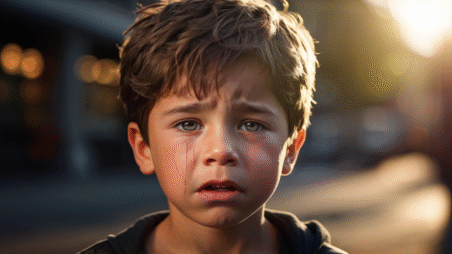The Draft Report on the Protection of Minors Online, a significant legislative initiative within the EU, is currently under discussion in the Committee on the Internal Market and Consumer Protection. EU Perspectives spoke with MEP Christel Schaldemose (S&D/DEN), rapporteur for the report.
During the interview, Ms Schaldemose highlighted the growing risks children face on digital platforms, particularly the pervasive use of addictive design features aimed at keeping young users engaged. She also stressed the urgent need for stronger EU-level regulation that shifts responsibility away from parents and to the platforms. For her, protecting minors online must move beyond good intentions to become enforceable law.
The report focuses on protecting minors. Online and social media are now part of many children’s lives. Do you consider these platforms harmful?
Well, not everything and not everyone on the platforms is causing harm, and not all minors are exposed. However, in my opinion, there is a systemic risk that they will face exposure to age-inappropriate content. I mean, even the fact that the platforms themselves say they have a 13-year-old age limit, yet we know many kids are online even before that, that’s unacceptable. Platforms need to do more, and we must ensure that authorities enforce European regulations in these areas. We might even need more tools in the toolbox to cope with this.
You might be interested
The thing is, first and foremost, platforms, like social media, often have a business model built around maximising time spent online. That allows them to harvest data. And to keep people online, minors included, they’ve developed addictive features: notifications, the like button, infinite scroll, autoplay videos, and more. We need to address this. It’s not okay. It is simply not okay that kids are so exposed to these things.
Ban addictive features for minors
Your report emphasises the need for laws at the European level. What solutions might be the most effective?
I think we need a European initiative to ban addictive design features for minors. We must ensure that the protections in the Digital Services Act (DSA) extend to other internet services, like video games and services that aren’t necessarily platforms. For instance, we should ban targeted advertising to minors.
We should ban targeted advertising to minors. – Christel Schaldemose
In Article 28 of the DSA, we state that it should be safe and secure for kids to be online, but that’s clearly not the case for everyone today. So we need to change that. Design features that lead to addiction and mechanisms, to ensure age-inappropriate content isn’t shown to children, are essential. As it stands, some platforms are simply not safe for kids. We need to ensure that either they aren’t online or, when they are, the content they see is appropriate.
One of the report’s key points is age verification. Some member states have discussed banning social media for children under 15. The Commission plans to launch an age verification app, but wouldn’t this require all users to prove their age? Doesn’t that clash with privacy concerns and the GDPR?
We wouldn’t even have this problem if the GDPR were properly enforced. Under the GDPR, you’re not allowed to harvest unnecessary data; the principle of data minimisation is already in place.
However, we know that social media attracts kids and minors. So we must ensure some form of age affirmation or verification exists, and it can be done without compromising user privacy. The technical solutions already exist and are currently being tested in several member states. I don’t think age verification is about risking users’ privacy. On the contrary, it’s a tool that can help us. It’s not a silver bullet, but it can help ensure that kids either aren’t online or only see appropriate content.
Meta messages are ridiculous
The report says platforms should be primarily responsible for protecting minors. Meta has proposed age checks and parental approval for app downloads, but given big tech’s history of resisting regulation, how seriously should policymakers take statements like Meta’s?
Honestly, I think Meta’s messaging, asking for EU laws that help parents control where their kids are online, is ridiculous. No parent can fully understand the algorithms or every aspect of how these platforms work.
Meta’s asking for EU laws that help parents control where their kids are online, is ridiculous. – Christel Schaldemose
Of course it’s the platforms’ responsibility. They’re the ones providing the services, so they must ensure inappropriate content isn’t accessible to minors. So it must be the platform’s responsibility to begin with.
Blaming parents simply unfair
Yes, it’s also important to make it easier for parents to help. But the responsibility can never fall entirely on them. Platforms spend billions to make us addicted. How on Earth should parents as individuals be able to stand up against that?
Blaming parents is simply unfair, and it is the same as not wanting to solve the problem. The only way a parent could truly ensure their child’s safety online would be to take away the phone or tablet, and I don’t want to go there. The future is digital. Kids need to learn to use these tools. That’s why the obligation must clearly fall on the platforms.
The only way a parent could truly ensure their child’s safety online would be to take away the phone or tablet, and I don’t want to go there. – Christel Schaldemose

Many platforms are based in the US and some MEPs have mentioned rumours that the Commission might soften the Digital Finance Act to avoid tensions with the Trump administration. Do you think this influences how far Europe will go?
If I listen to what the Commission has said so far, I think they will be tough. American companies can easily avoid fines, they just have to follow the rules. These rules aren’t designed to harm US companies; they’re designed to keep Europeans safe.
So again, if the companies want to avoid fines, they simply need to comply. Will political pressures influence enforcement? Let’s wait and see. But both (Commissioner Henna) Virkkunen and Ursula von der Leyen have been quite clear that the laws we have in place are non-negotiable. I cross my fingers, I hope for the best, and I trust the European Commission to stick to that. Yeah, they will not negotiate on the content of the laws. So I hope that’s the case and I think it will be the case.
Stronger, faster enforcement
The Digital Fairness Act is still under discussion. Do you think it will influence upcoming regulations?
It’s more likely to influence future regulations than to change existing ones.
What do you believe are the next steps we can expect from the Commission?
Hopefully, stronger and faster enforcement of the DSA. And a willingness to close loopholes in the current regulations so we can protect minors more effectively.
I believe the Commission understands the problem and is willing to go further, maybe not as far as I would like, but that’s something we can negotiate.











